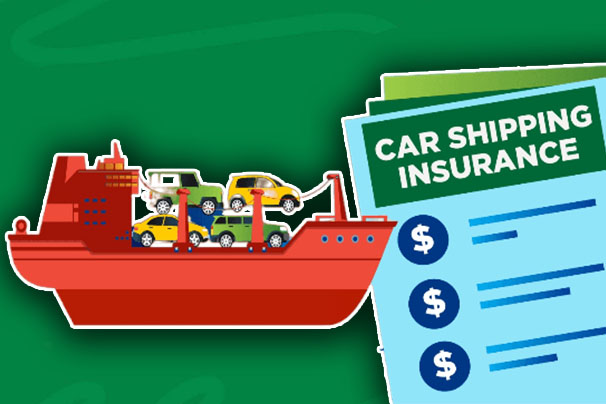If you recently purchased a car outside your home country and would like to find out if you need car insurance to ship your vehicle, this article is for you. One of the frequently asked questions on the internet is, “Do you need insurance to ship a car?

The simple answer to this question is no. You do not necessarily need insurance to ship your car. This is because shipping companies are required by law to provide basic liability insurance under the United States Department of Transportation.
However, while it is not required to have personal car insurance, it is recommended that you have one, and this is because most shipping companies only provide basic coverage options. If you would like to learn more, read this article to the end.
Do You Need Insurance to Ship a Car?
As stated above, you do not need insurance to ship your car, and this is because shipping companies are required to provide basic liability coverage.
Hence, if you’re shipping your car, whether by plane, train, or auto transport truck, you are not required to have personal auto insurance. However, if you’re shipping your vehicle through a car driver, you will need coverage.
In addition, you can also opt for additional coverage to ensure your vehicle is adequately insured. This is important if you’re shipping an exotic vehicle, luxury, or antique.
Although research shows that less than 5% of cars that are transported report any damage, getting personal car insurance will give you peace of mind.
Why You Shouldn’t Ship Your Car Without Insurance
There are several reasons why you shouldn’t transport your vehicle without purchasing a personal insurance policy. While this is not compulsory, many shipping companies only provide minimal insurance. Although some companies offer full coverage, others do not.
However, personal car insurance gives you backup coverage for the damages your shipping company may not cover. It is critical to note that if your shipping company doesn’t offer an insurance option, ensure you choose a different company.
Whether you’re shipping across a country, overseas, or to a neighboring state, there are risks of loss or damage. However, you can avoid these losses or damages by ensuring your carrier is properly insured.
What Are the Types of Auto Transport Insurance?
Auto transport insurance is designed to protect vehicles during transit by land, sea, or air. However, it is important to understand the different types of auto insurance. Here is a list:
Customer
This is a basic insurance policy that you must have for your vehicle. Customer insurance is required to drive and ship your vehicle by the auto transport company, as it is a legal issue.
However, with personal insurance, your car is protected from different cases, like damages that may occur when you drive a car or when your auto is under the shipping company’s responsibility. In essence, this insurance helps with replacement costs when needed.
Carrier Insurance
This insurance covers damages or losses that may happen to your car during shipping. It is recommended to always check if your broker hires carriers that provide insurance coverage.
This is because if not, you might get into trouble where your car is damaged, and you are the one who will pay for that even if the blame is not on you. It is worth noting that this insurance is a legal responsibility of the US Department of Transportation.
Broker Insurance
This insurance often acts as a middleman between the car carrier and the client. It also offers insurance coverage provided by third-party coverage.
Hence, it is recommended to know with the broker about car transport insurance before signing an order to ship a car.
What Does Auto Transport Insurance Cover?
Now that you know some of the insurance offered by auto transport insurance, it is important to know what is covered. Firstly, coverage varies by company.
Most companies will cover your vehicle for any damage; others will only cover damages from car transport. However, here is some of the coverage offered:
- Damage that occurs while transporting, unloading your car, or loading
- Also, basic damages such as fire damage, theft, and scratches
- Insurance of the car itself.
What Is Not Covered?
Here are some of the coverages that your auto transport insurance might not offer. Check out the list below:
- Damages due to civil unrest, weather, or natural disasters.
- Also, damage due to your car being in poor shape when shipped, such as loose parts or leaking oil
- Lastly, personal items inside your vehicle.
How to Secure Your Car
There are certain things you should know before deciding on a car transport company to ship your vehicle to.
Request Proof of Insurance
You will have to first check if your transporter is authorized by the Department of Transportation and carries its motor carrier number. Also, you should ask every company you consider working for for a copy of their insurance certificate.
They are legally expected to give it to you, and if they are professionals, they will provide you with proof of their insurance and discuss its details. However, if they hesitate, it might be a bad sign for their credibility.
Contact Your Private Car Insurance
Next, speak to your car insurance provider to determine how much your insurance covers during the shipping and under which circumstances.
Also, inform them about your plan to transport your vehicle, and they may offer additional coverage that you might consider purchasing.
Remove Your Possessions from Your Car
Ensure you remove all valuable possessions from your vehicle, as this is not usually covered by standard auto transport insurance.
Inspect and document your car.
You should document your car’s original condition before you give it to the shipper of your choice.
This should be standard procedure for carriers, and it is better to do your inspection beforehand. You can take pictures of your vehicle from all angles and record any damages, scratches, or chips.



